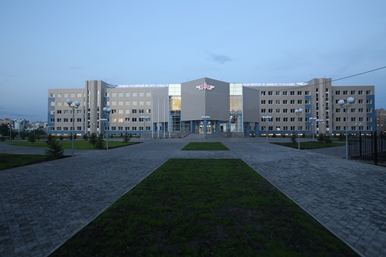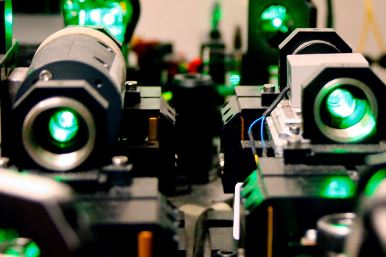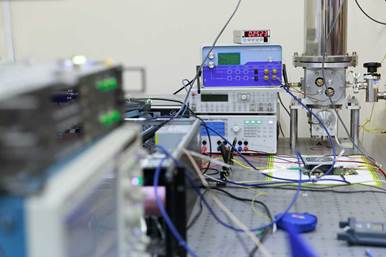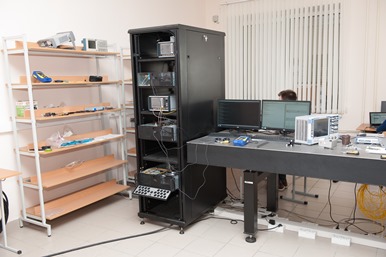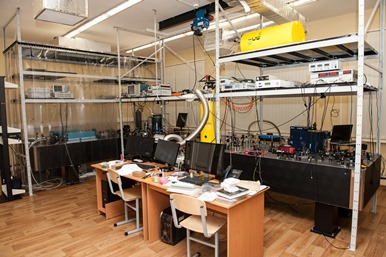 Web Content Display
Web Content Display
Kazan Quantum Center
Director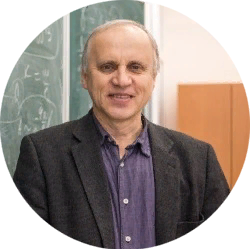
Prof. Sergey Moiseyev
Doctor of Science, Physics and Mathematics, Professor
Тel.: +7 (843) 231-16-29
E-mail: samoiseev@kai.ru
On July 5, 2013, it was decided to create Kazan Quantum Center at the meeting of the president of the Republic of Tatarstan Rustam Minnikhanov with representatives of Tatarstan's research organizations and the leadership of the Russian Quantum Center (RQC).
On September 1, 2014, the official opening of the Kazan Quantum Center took place. It was co-founded by KNRTU-KAI rector, Prof. Albert Gilmutdinov and the Chairman of the Board of Trustees of the RQC, Mr. Sergey Belousov.
Research laboratories
At present, there are three optical laboratories in KQC equipped with basic experimental machinery:
- Laboratory of Quantum Memory (headed by Prof. Sergey A. Moiseyev) aims to create an effective Raman photon echo quantum memory in a rare-earth doped crystals
- Laboratory of Photonics and Fiber Quantum Optics (headed by Prof. Alexey Zheltikov, Professor of Moscow State University) deals with single photon sources, ultrashort light pulses and high quality fibers
- Laboratory of Quantum Cryptography (headed by Dr. Arthur Gleim) aims to implement a functional quantum network and realize a secure and reliable connection between several nodes
All laboratories are equipped with modern specialized optical equipment complexes that allow to conduct research in various areas of modern quantum optics. At the same time, the center's laboratories work in a single major direction: to carry out fundamental and applied research devoted to obtaining new knowledge in the field of quantum physics, optics and quantum informatics, and to develop the latest quantum information technologies.
Main directions of laboratory work
- To create and develop quantum methods to protect of transmission and storage of information;
- To create quantum memory as a basic platform of quantum technologies;
- To develop fiber and integrated optical single-photon technologies;
- To develop methods for the transfer of a secret key (new secure methods of transferring information):
- to create an urban quantum network (quantum Internet);
- to create quantum communications between the cities of the Republic of Tatarstan
The future goal of the KQC is to create a quantum network at long distances, which involves the development and creation of new quantum information systems; - To develop quantum repeaters based on optical quantum memory;
- To develop quantum networks between several cities;
- To develop quantum calculators and switches for operational processing of information in a quantum network;
- To develop optical quantum computer for quantum networks.
Research cooperation
Due to its active work and expanding research relations, Kazan Quantum Center is already well known in Russia and abroad. At present, employees of KQC undertake joint research, write research articles with colleagues from France, China, South Korea, Saudi Arabia, UK, Canada. There is an agreement to establish a cooperative laboratory with China. Collaboration with India in the field of quantum communications has begun. Active cooperation also unfolds with Russian research foundations / organizations. Among the most important are the following:
- ITMO University, St. Petersburg (Corresponding Member of the RAS, Prof. V.N. Vasiliev, Prof. S. A. Kozlov) - optical quantum communications;
- RQC, Moscow (Prof. AM Zheltikov) - Fiber-optic methods for the generation of light fields. Cooperation since 2014;
- Moscow State University, Moscow (Prof. S. P. Kulik). One of the leaders in Russia in quantum optics and quantum informatics. Collaboration in creation of a nano-optical quantum memory since 2014;
- FTIAN RAS (Insitute of Physics and Technology, Russian Academy of Sciences), Moscow (Prof. Yu. I. Bogdanov). Leading Institute of the Russian Academy of Sciences in the field of development of quantum computers. Cooperation in the field of optical quantum measurements. Work within the framework of a joint scientific project since 2014;
- KPhTI KazSC RAS (E. K. Zavoisky Physical-Technical Institute (KPhTI) of the Kazan Scientific Center of the Russian Academy of Sciences), Kazan. Basic Institute of the Russian Academy of Sciences in the field of magnetic resonance. Close cooperation with many employees. S. A. Moiseyev, K. I. Gerasimov, I. Z. Latypov, and A. G. Shmelev concurrently work at the KFTI and therefore retain important close ties with the staff of this institute, which is important for the establishment of the KQC as a strong scientific center;
- Kazan Federal University, Kazan (B. Z. Malkin, S. L. Korableva, E. I. Baybekov). Growth and theory of optical spectra of inorganic crystals. Long-term cooperation with a group of theorists who have a unique experience in the theoretical description of the optical spectra of crystals important for use in quantum memory;
- Institute of Advanced Studies of the Academy of Sciences of the Republic of Tatarstan (ScD Andrianov). Theoretical research in the field of optical quantum processing and a quantum computer. Cooperation since 2010;
- Prof. Raoul Nigmatullin, KNRTU-KAI - Development of new methods of signal processing. There is reason to expect that these works will allow raising experimental equipment to a new level of sensitivity and accuracy.


